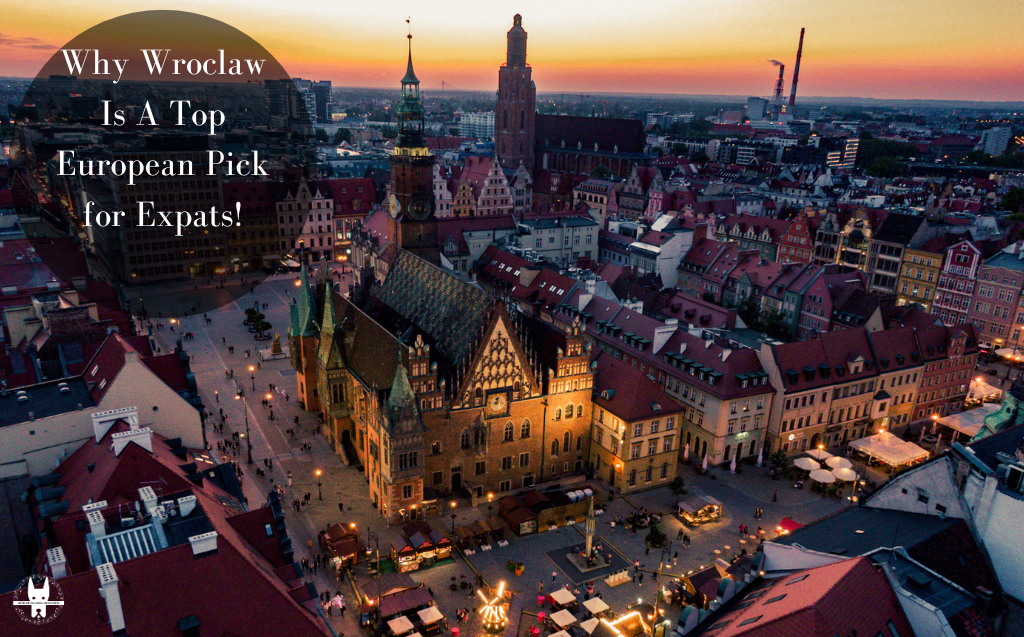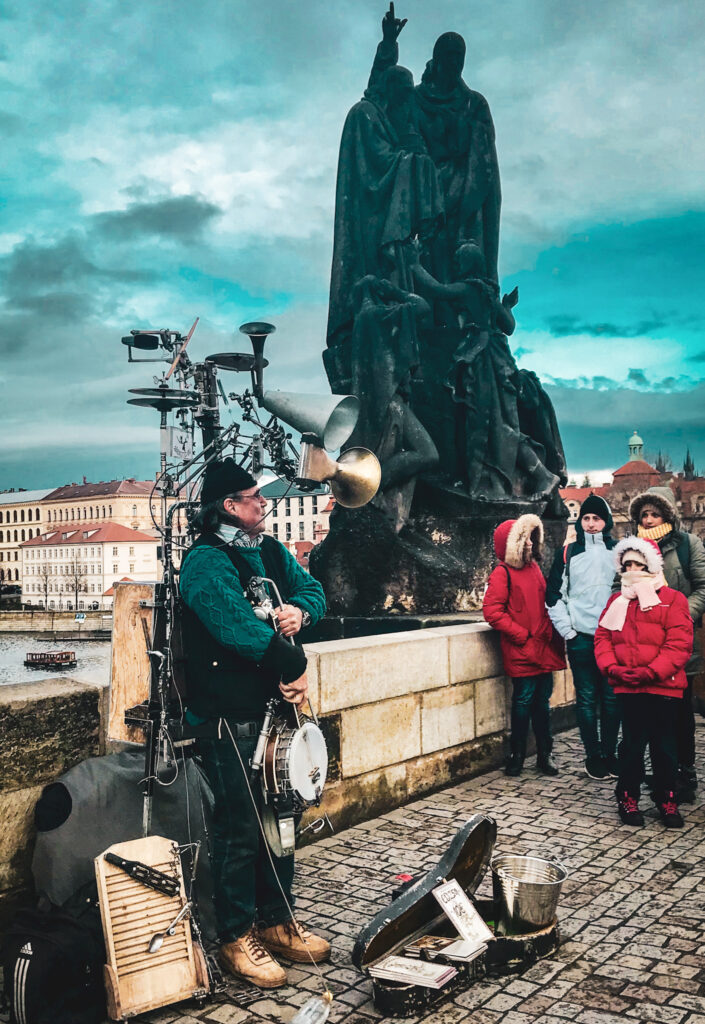What really makes a tour guide unforgettable? It’s not the clipboard, the flag, or rattling off facts, it’s the way they make you feel the place.
As someone who guides curious travellers across Poland, the Czech Republic, and Slovakia, I’ve seen firsthand what sticks. And it’s never just dates and buildings. It’s moments, crafted, personal, and rooted in something real.
This guide isn’t just for tourists. It’s for anyone in travel, guides, hosts, operators, who wants to understand what elevates a tour from “fine” to phenomenal. Through this blog, let’s dig into the 10 essential qualities of a good tour guide that make the difference.
1. Excellence in Guiding and Storytelling: Why Stories Stick
What separates a decent tour from an unforgettable one? Stories. Not just any stories, but ones told with purpose, rhythm, and relevance. A great guide doesn’t just relay facts; they translate places into emotions.
Why storytelling matters:
- Stories humanise history.
- Guests remember emotions, not dates.
- Great stories spark curiosity and keep attention.
- They make complex cultures feel personal and alive.
Whether you’re guiding at Malbork Castle or through the backstreets of Budapest, it’s not the monument, it’s the meaning you breathe into it. Think of storytelling as your emotional GPS.
Pro tip: Mix researched tales with personal experiences. That balance is what makes a guest say, “I didn’t want it to end.”
2. The Power of Personal Connection in Guiding
Tour guiding is part theatre, part therapy. It’s not just about delivery, it’s about connection. People don’t always remember what you said, but they never forget how you made them feel.
How to create real bonds on tour:
- Greet everyone by name, early and often.
- Listen actively, not just perform.
- Share something authentic, not polished, not perfect.
- Read the room. Adapt your style, pace, and tone.
When a guide shares a laugh, a memory, or a tiny insight into their own journey, it shifts the dynamic. It becomes human-to-human, not guide-to-guest.
If you’ve toured with me in Poland, chances are we’ve swapped more than travel tips. That’s the magic I chase.
3. Cultural Sensitivity & Ethical Travel: Leading with Heart
Modern travellers want more than a checklist. They want meaningful experiences that respect the places and people they visit. That’s where cultural sensitivity isn’t just nice, it’s necessary.
Ways to guide with cultural respect:
- Learn (and pronounce) local names and customs.
- Highlight traditions without stereotyping them.
- Always credit the communities behind a story or practice.
- Educate gently, don’t shame mistakes, guide with grace.
- Collaborate with local artisans and storytellers when you can.
This isn’t about being politically correct. It’s about being genuinely respectful. As a professional tour guide in Central Europe, where every city is layered with history and tension, this awareness is your compass.
Responsible tourism in Poland and Central Europe starts with us, guides who know how to walk the line between engaging and ethical.
4. Little Touches, Big Impact: Crafting a Memorable Guest Experience
Exceptional tour guides understand that it’s the subtle details that transform a good tour into an unforgettable experience. It‘s about creating moments that resonate, long after the journey ends.
Strategies to elevate the visitor experience:
- Personalised interactions: Remembering names and personal interests to make guests feel valued.
- Sensory engagement: Incorporating local tastes, sounds, and sights to immerse travellers fully.
- Surprise elements: Introducing unexpected delights, like a hidden viewpoint or a local delicacy.
- Interactive storytelling: Encouraging participation through questions and discussions.
As the WFTGA aptly states, “Every tour you lead leaves a lasting impact, inspiring curiosity and connection.”
5. Local Partnerships That Enrich the Tour Experience
Tour guides play a pivotal role in supporting and promoting local enterprises, fostering a sense of community and sustainability. By collaborating with local artisans, eateries, and shops, guides offer travellers authentic experiences while contributing to the local economy.
Benefits of local collaboration:
- Authenticity: Providing guests with genuine, local experiences.
- Economic support: Channelling tourism revenue directly into the community.
- Cultural preservation: Highlighting and sustaining traditional crafts and practices.
- Enhanced storytelling: Sharing rich narratives tied to local businesses and their histories.
The WFTGA emphasises the importance of such connections, noting that guides have the power to turn a simple visit into a life-changing experience.

6. Adapting to Changing Guest Expectations
In today’s dynamic travel landscape, guests seek more than just sightseeing, they desire meaningful, personalised experiences. Professional tour guides must adapt to these evolving expectations by staying informed and flexible. Let’s actively contribute to a positive, sustainable global tourism industry, rather than subtract from it through negativity or irresponsible business practices.
Approaches to meet modern traveller expectations:
- Continuous learning: Staying updated on local developments and global travel trends.
- Customised tours: Tailoring experiences to match guests’ interests and preferences.
- Interactive engagement: Encouraging guest participation and feedback.
- Sustainable practices: Incorporating eco-friendly and responsible tourism principles.
7. Tour Guiding in the Digital Age: Tech with a Human Touch
Digital tools shouldn’t replace the magic of human connection, but when used right, they enhance it.
Whether it’s real-time translation apps, augmented reality on walking tours, or custom Google Maps for self-guided detours, today’s guides are expected to wear a bit of a tech hat. But it’s not about gadgets for the sake of it. The real win? Knowing when tech supports the story, and when to switch it off and just talk.
Smart ways guides are using tech today:
- Interactive apps for historical reconstructions or reimagining lost spaces
- Quick-access QR menus or maps to support local businesses
- Online booking systems that simplify the guest journey
- Using Google Reviews or TripAdvisor not just as vanity metrics, but as feedback loops
In a region like Central Europe, where layers of history compete with modern expectations, tech-savvy guiding can bring context to life without losing the soul.
8. Safety, Trust & Crisis Know-How: The Unsung Skills
No one books a tour expecting a hiccup, but when something goes sideways, an unforgettable guide quietly steps up.
Whether it’s a sudden weather shift in the Tatra Mountains or a guest losing a passport in Prague, a good guide manages it. A great one makes it feel like it was part of the plan.
Real safety isn’t just about rules. It’s about:
- Staying calm when others can’t
- Reading group dynamics and individual energy
- Knowing the quickest route to a pharmacy or embassy
- Preparing for the unexpected, and never showing the stress
In Central Europe, where travel often blends urban and remote, safety isn’t a checklist; it’s a mindset. And trust? That’s the currency you earn before it’s needed.
9. Professionalism, Boundaries & Burnout: Taking Care to Show Up Right
Guides often give everything: stories, patience, humour, flexibility. But without boundaries, burnout’s real.
Being unforgettable doesn’t mean being “on” 24/7. The most respected guides know when to lean in and when to step back. They show up with presence because they’ve made space for themselves, too.
Sustainable guiding looks like:
- Saying “no” with kindness and clarity
- Creating mental buffers between tours
- Charging fairly and valuing the time between gigs
- Investing in peer networks and continuous learning
This kind of professionalism doesn’t just benefit the guide, it shows up in how guests feel seen, heard, and respected. It’s the secret behind lasting impressions.
10. Tour Guide Ethics & Purpose: Why It’s More Than Just a Job
You can train for logistics, polish your facts, and even rehearse the jokes. But purpose? That’s what glows from the inside out.
Whether you’re standing under the Wawel Dragon or walking guests through the scars of WWII, the weight and joy of the job lie in its ethics. What you choose to highlight. How do you give voice to communities? Whether you sell or serve.
Tour guiding with purpose means:
- Refusing to oversimplify painful histories
- Supporting family-run businesses, not just big players
- Knowing when not to speak, and when to speak up
- Honouring lived stories over touristy soundbites
It’s not a performance. It’s advocacy on foot.
And when done with intention, it becomes a ripple effect, inspiring travellers to go home more curious, more thoughtful, and more connected to the world.
Let’s Make Your Trip Unforgettable
Poland and its Central European neighbours aren’t just places to visit—they’re stories waiting to be told. If you’re looking for a guide who believes in purposeful travel, honest storytelling, and showing you what guidebooks miss, I’d love to be part of your journey.
Start planning your custom experience here.
FAQs: What Makes a Great Tour Guide in Central Europe?
1. How do I choose a good tour guide in Poland or Central Europe?
Look for someone who blends storytelling with deep local insight. A great guide brings history alive and makes you feel connected, not just informed.
2. What are the top qualities of a good tour guide?
Empathy, storytelling, professionalism, adaptability, and cultural sensitivity. And yes, a touch of humour doesn’t hurt.
3. Can a tour guide really change my travel experience?
Absolutely. A good guide adds meaning to the journey, weaves in local perspective, and creates emotional connections you’ll remember forever.
4. What should I expect from a private guided tour in Central Europe?
Expect context, care, and personalisation, whether you’re wandering Wrocław or sharing dumplings in Prague.
5. Is it worth hiring a tour guide in Poland?
Yes, especially if you want a deeper understanding and curated local tips. A guide saves you time, avoids tourist traps, and shows you the soul of a place. Check out my Gdańsk guide here!





